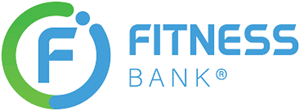Editorial Note: We earn a commission from partner links on Doughroller. Commissions do not affect our authors’ or editors’ opinions or evaluations. Learn more here.
Getting older unlocks a world of discounts available only to those in their golden years. Along with savings at your favorite dining spot, seniors can take advantage of discounts on banking. Senior-friendly bank accounts can come with perks such as no monthly maintenance fees (or fee waivers), free checks, and more.
Below are some of the best bank accounts for seniors. These offer perks for seniors or have special accounts designed for those 65 and older. We’ve also included some options for bank accounts that are a great choice, no matter your age.
The Best Bank Accounts for Seniors
Some of the best bank accounts for seniors have restrictions such as age, along with discounts and perks only for older customers. Because banks want the business of senior citizens, they offer special accounts, competitive rates, and perks targeted at older adults. Here are some of the best bank accounts for senior citizens:
| Bank Account | Best For |
| Axos Bank Golden Checking | Best overall |
| Regions Bank 62+ LifeGreen Checking Account | Cash rewards |
| FitnessBank Senior Savings Account | High interest |
| TD Bank 60 Plus Checking | Extended branch hours |
| U.S. Bank Easy Checking | Account discounts for seniors |
| Consumers Credit Union Rewards Checking | High-interest rewards |
1. Axos Bank Golden Checking

For those 55 and older, Axos Bank offers a Golden Checking account with solid perks. There are no minimum monthly balance requirements, no overdraft fees, and no non-sufficient fund fees. The minimum balance required to open a Golden Checking account is $250.
Other perks include free personal checks and up to $8 domestic out-of-network ATM fee reimbursements every month. This is helpful since Axos Bank is an online-only bank. Additional banking features include peer-to-peer payments, bill pay, debit card management, and increased security features such as two-step authentication and 128-bit SSL encryption.
- Minimum initial deposit: $250
- APY: 0.10% on all account balances
- Monthly service fee: $0
- ATM Network: 91,000+
- Minimum age: 55+
2. Regions Bank 62+ LifeGreen Checking Account

As a brick-and-mortar bank, Regions Bank 62+ LifeGreen Checking Account offers in-person, online, and mobile banking. You can open an account with as little as $50, and easily avoid the monthly service fee. It offers unlimited check writing and a 30% discount on a safe deposit box.
The account comes with a Regions Visa debit card, allowing you to get Regions Cashback Rewards, where you can earn 1.5% cash rewards for purchases from participating retailers and service providers.
Regions Bank has a relatively small ATM network, with fewer than 2,000 locations, and they do charge a fee of $3 to use out-of-network ATMs. However, the bank has more than 1,450 branch locations in 16 southeastern states, including Texas, Florida, Georgia, Virginia, and the Carolinas. The ATM limitation may not be a factor if you live in one of those states.
- Minimum initial deposit: $50
- APY: N/A
- Monthly service fee: $11 with paper statements, $8 with online statements, $0 with monthly direct deposits of $300 or more (or an average monthly balance of $1,500 or more)
- ATM Network: 2,000
- Minimum age: 62+
3. FitnessBank Senior Savings Account

FitnessBank has a unique approach to banking the institution ties interest rates to a customer’s activity level. The FitnessBank Senior Savings account is available to U.S. citizens ages 65 and older. Rates vary based on the daily steps you take with the highest rate of 6.00% APY available to seniors who take 7,500+ steps every day (as of the publication of this article), and make a minimum of 15 debit card transactions, and also open a Senior Elite Checking Account.
There is a $100 minimum opening deposit with interest earned on balances over $100. The $10 maintenance fee is waived with a $100 minimum average daily balance. Perks include free external account transfers and free incoming wires. Account balances are capped at $250,000.
Since the APY for FitnessBank accounts is tied to your step count, you will need to download the free FitnessBank Step Tracker app. After you download it, you can link it to your Fitbit, Garmin, Google Pay, or Apple Health, set a daily step goal then get moving.
- Minimum initial deposit: $100
- APY: Up to 1.00% on balances up to $7,499, and up to 6.00% on balances above
- Monthly service fee: $10, waived with $100 minimum average daily balance
- ATM Network: N/A – Fitness Bank describes a Senior Savings Account as a “non-transactional account”
- Minimum age: 65+
4. TD Bank 60 Plus Checking

TD Bank offers a TD 60 Plus Checking account for customers ages 60 and older. Since the bank is located on the East Coast, you need to live in a covered state. The account is available for seniors who live in Connecticut, Washington, D.C., Delaware, Florida, Maine, Massachusetts, New Hampshire, New Jersey, New York, North Carolina, Pennsylvania, Rhode Island, South Carolina, Vermont, and Virginia.
While the account comes with a $10 monthly maintenance fee, it’s waived if you maintain a $250 minimum daily balance. There is no minimum opening deposit. Perks include free bank checks, money orders, and paper statements. It’s an interest-earning account, but the rate is only 0.01% APY.
You also get access to online bill pay, peer-to-peer payment options, mobile banking, and contactless debit cards. If you’re in the market for a loan, you can get a 0.25% discount on TD Bank home equity and personal loans.
- Minimum initial deposit: $0
- APY: 0.01%
- Monthly service fee: $10, waived with a $250 minimum daily balance
- ATM Network: 5,300 and will reimburse fees from out-of-network ATMs
- Minimum age: 60+
5. U.S. Bank Smartly Checking

U.S. Bank no longer offers a dedicated senior bank account. However, U.S. Bank Easy Checking is available to most bank customers, and it offers special perks for seniors. It comes with a $6.95 monthly maintenance fee, which is waived for those ages 65 or older. The bank also waives the $2 paper statement fee for senior customers. Seniors can also get a 50% discount on personal check reorders, as well as on annual safe deposit box rental fees.
The minimum opening deposit for the account is $25. Other perks include online and mobile banking, mobile check deposit, online bill pay, and more. The bank uses 128-bit encryption to secure your data.
- Minimum initial deposit: $25
- APY: N/A
- Monthly service fee: $6.95, waived for those 65 and over
- ATM Network: 90,000+ MoneyPass and Cardtronics ATMs
- Minimum age: 18
6. Consumers Credit Union Rewards Checking

Consumers Credit Union does not offer a dedicated account for seniors. But seniors looking to earn interest that outpaces inflation should check out the Rewards Checking account. The high-yield checking account offers interest between 3.00% and 5.00% APY, with the specific rate determined by the number of activities performed in the account.
For example, to earn 3.00% you must agree to accept e-documents, make at least 12 debit card purchases each month, and accept deposits of at least $500 per month. That rate will be paid on balances up to $10,000. The 5.00% rate will require all the same activities, as well as spending a minimum of $1,000 in Visa credit card purchases each month.
In this way, rewards are provided in the form of higher interest rates. The account offers online and mobile banking, mobile check deposit, online bill pay, free eStatements, unlimited check writing, and access to more than 30,000 fee-free ATMs nationwide.
- Minimum initial deposit: $0
- APY: 3.00%, 4.00%, and 5.00%, depending on activity level within your account
- Monthly service fee: $0
- ATM Network: 30,000+, and unlimited reimbursement for all ATM fees
- Minimum age: Not age specific
Why Choose a Bank Account for Senior Citizens
Bank accounts marketed to senior citizens can offer perks such as free checking, free checks, and free paper statements. This can make them convenient for older adults who may have different banking preferences. They can also be less hassle than accounts that require keeping track of daily balances to avoid fees.
However, just because an account is marketed to senior citizens doesn’t mean it’s the best option for your situation. For example, monthly fees can vary between accounts along with minimum balance requirements. If you think you will easily meet the requirements to avoid fees at another bank and you like the account perks, that may be the best option. Some people prefer to stay with the bank they have been using since they are familiar with the website and branches.
Sometimes, a savings account may make more sense than a checking account. Even interest-earning checking accounts often come with limits or earning caps and other requirements. Evaluate your situation before deciding on a bank account option that fits your needs.
What Senior Citizens Should Consider When Selecting a Bank Account
Seniors have different banking needs than younger adults. Below are some considerations that apply to older adults and can tip the scale toward a certain bank account option:
- Do you prefer a bank with a physical location near your home or are you okay with an online-only option?
- Do you write many checks? If so, free checks can be a good perk.
- Is it important to you to earn interest on the money in your checking account?
- Do you use ATMs regularly and need access to fee-free locations near your home?
- Do you travel frequently and need a national bank with fee-free ATM locations all over the U.S.?
- Do you value perks like online and mobile banking, mobile check deposits, peer-to-peer payments, and bill pay?
- Are the bank’s online and mobile banking easy to use?
How We Chose the Best Bank Accounts for Seniors
To determine the six best bank accounts for senior citizens, we used the following criteria:
- Minimum initial deposit required.
- APY offered, if any.
- Monthly service fee and the ability to have waived.
- Other fees are charged by the institution.
- ATM Network, which considered the size of the ATM network, the number of bank branches, and reimbursement of out-of-network ATM transactions.
- Number of branch locations, if any.
- Rewards are offered, typically on debit card transactions.
- Unique services are offered by the account.
- Other account types are available through the bank.
Not all banks listed include all the factors listed above but were included because of their strength in one or more specific areas.
Frequently Asked Questions (FAQ)
Which is the best bank for senior citizens?
After analyzing several banks, we determined that the Axos Bank Golden Checking account is the best account for seniors. That is due to a combination of a low minimum initial deposit requirement, interest paid on all balances, no monthly fee, and access to more than 91,000 fee-free ATMs.
Is Chase a good bank for seniors?
We did not include Chase on our list because they do not have dedicated accounts for seniors. Though they do have some good general accounts, and the advantage of being a full-service bank that even operates internationally, their accounts tend to have high fees and pay interest on the low end of the scale, if they pay any at all.
Is Bank of America good for seniors?
Much like Chase, Bank of America does not offer senior-specific bank accounts. They also tend to pay lower interest and charge higher fees than much of the competition.
Final Thought on the Best Bank Accounts for Seniors
Many banks offer accounts and perks tailored to the needs of senior citizens. If you’re in the market for a new bank account, consider some options above and pick one that best fits your needs.
Keep in mind that just because you’re a senior, you don’t have to go with senior-only options. Mainstream bank accounts are available to adults ages 65 and older and may be the better choice for you. If your current bank or credit union fits your needs, you can keep your money there as long as it suits you.


